CARDANO’S CRYPTOGRAPHIC TRUST ECOSYSTEM
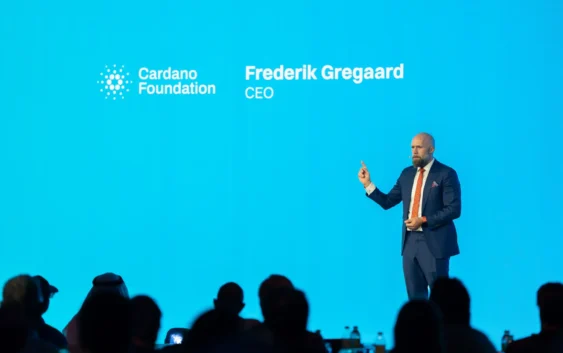
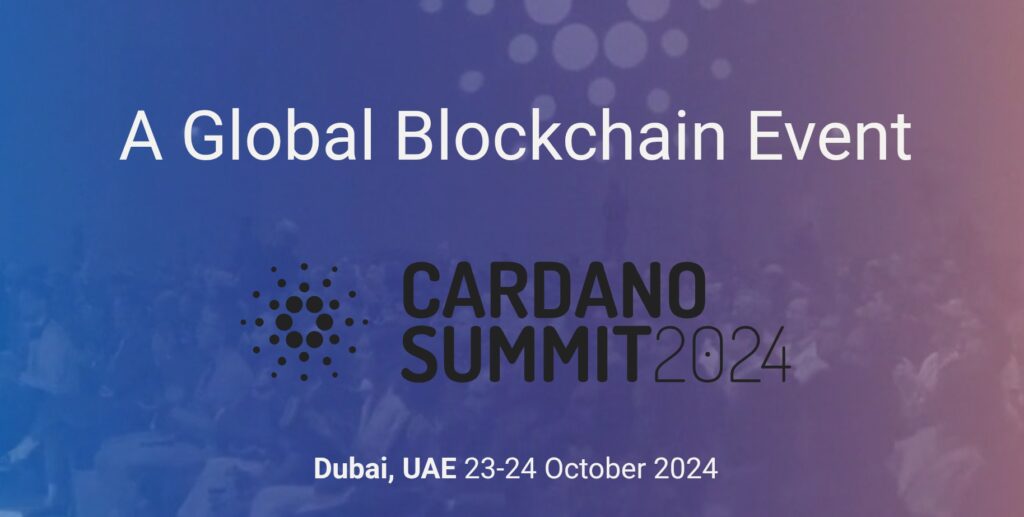
The global Cardano Summit returned with a bang in 2024, uniting industry leaders, businesses, Cardano ecosystem projects, and blockchain enthusiasts for a remarkable networking experience and an opportunity to connect with a new generation of innovative projects.
From October 23rd to 24th 2024, the Summit held its main stage event in Dubai, with over 20 community events around the world and thousands of virtual attendees joining from various continents.
The Cardano Summit 2024 was packed with insightful keynotes, engaging panels, and interactive masterclasses focused on adoption, education, governance, operational resilience, and more. Attendees also enjoyed a Gala Awards Dinner, celebrating the winners of the Cardano Battle of the Builders competition and showcasing at the Intercontinental Festival City.
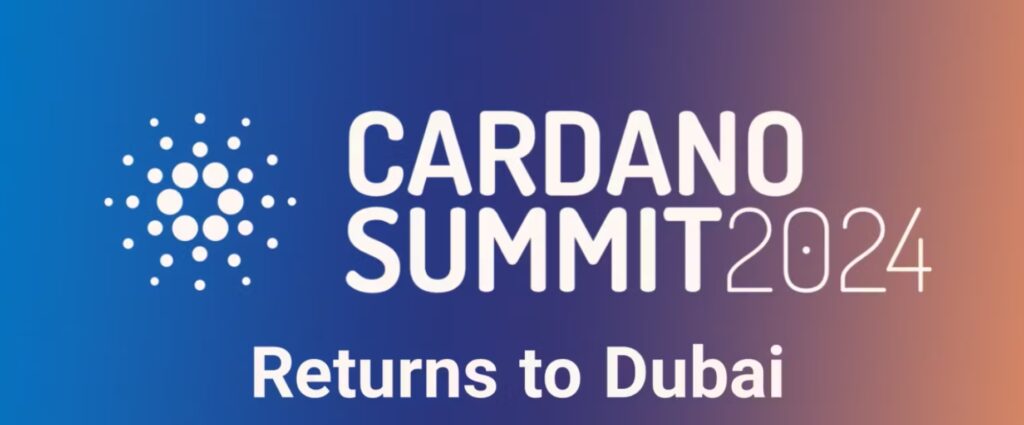
This year’s summit welcomed speakers representing a broad range of experts and leaders in the blockchain space, providing a diverse and thought-provoking platform for attendees to learn and grow within the rapidly evolving world of blockchain technology.
Overall, the Cardano Summit 2024 was a resounding success, offering invaluable opportunities for networking, knowledge-sharing, and collaboration among the global blockchain community.
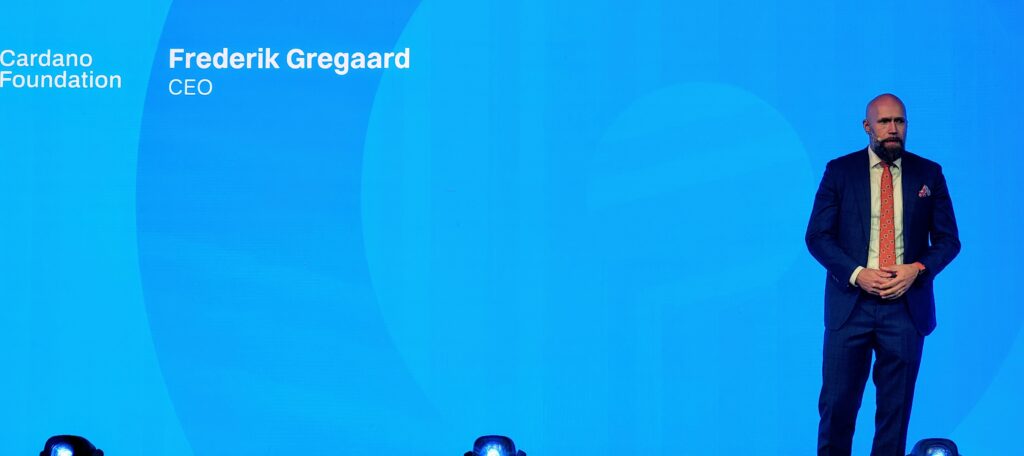
The Cardano Summit 2024, held in Dubai on October 23–24, 2024, marked a pivotal moment for the blockchain ecosystem, drawing over 1,100 attendees from 87 countries and thousands more participating virtually. Frederik Gregaard, CEO of the Cardano Foundation, delivered an opening keynote that articulated Cardano’s vision for a decentralized future, emphasizing economic equality, operational resilience, and technological innovation. This report synthesizes the core themes and insights from his address, contextualized by subsequent discussions and announcements at the summit.
Vision for a Decentralized Social Fabric
Gregaard opened his keynote by framing Cardano’s mission as a fight for global economic equality. He asserted that blockchain technology must transcend financial applications to address systemic social inequities. “We are fighting for a world where everybody has equal opportunity – economic opportunity to build an identity, to verify digital trust, and a collaborative economy powered by cryptographic evidence,” he declared. This vision underscores Cardano’s focus on interoperability and asset representation, with over 8 million native assets now standardized on its blockchain, influencing protocols beyond its ecosystem.
Reimagining Citizenship Through Wallets
Gregaard introduced the concept of blockchain-based citizenship, where wallets and native assets serve as economic identities. With 220 million active monthly wallets across Layer 1 blockchains, he likened this decentralized population to the sixth-largest nation-state globally. However, he critiqued fragmentation across Layer 2 solutions and governance models, advocating for Cardano’s role in unifying these systems. Projects like Landano, which enable access to capital markets for geographically isolated communities, exemplify this vision.
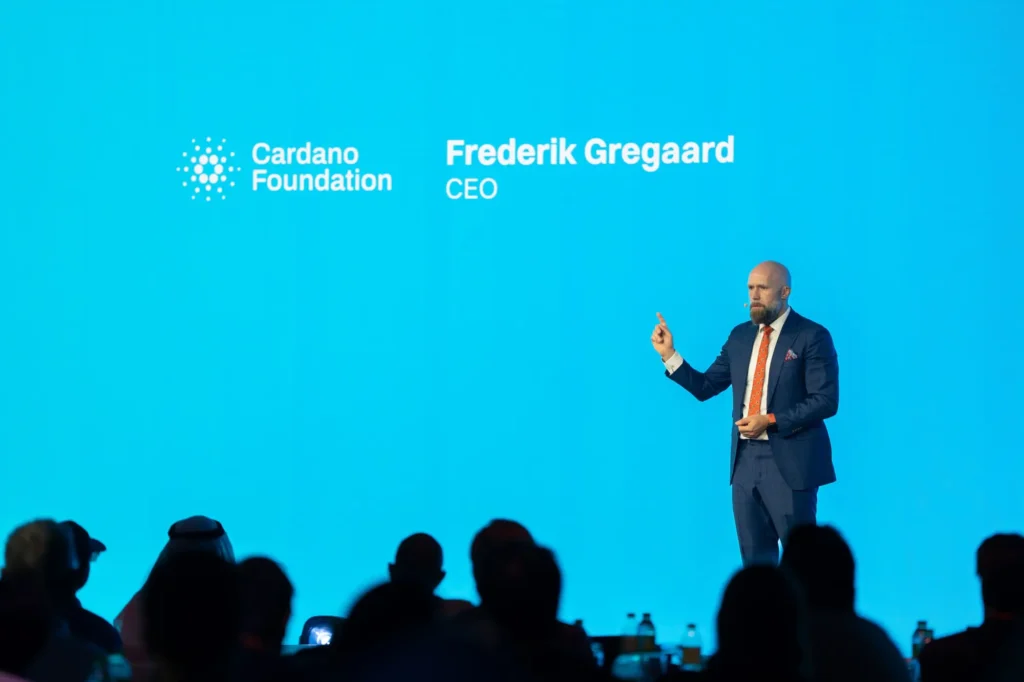
Operational Resilience Under Siege
A central theme of the keynote was Cardano’s resilience against systemic threats. Gregaard revealed that the network had endured sustained attacks over the preceding year, including social engineering campaigns, smart contract exploits, and a high-profile denial-of-service (DoS) assault[1][2]. Despite these challenges, Cardano maintained 100% uptime since 2017, a feat unmatched by traditional critical infrastructure[1][2]. This reliability has attracted institutional trust from entities like NASA, the United Nations Humanitarian Coordination Office, and UAE authorities.
Technological Convergence and Quantum Preparedness
Gregaard positioned Cardano at the intersection of emerging technologies, notably artificial intelligence (AI) and quantum computing. He warned that AI’s rapid adoption risks centralizing power unless paired with decentralized governance models. “Blockchain’s immutable data storage and trustless computing are antidotes to AI’s opacity,” he argued, highlighting collaborations to integrate zero-knowledge proofs and privacy-preserving AI training frameworks.
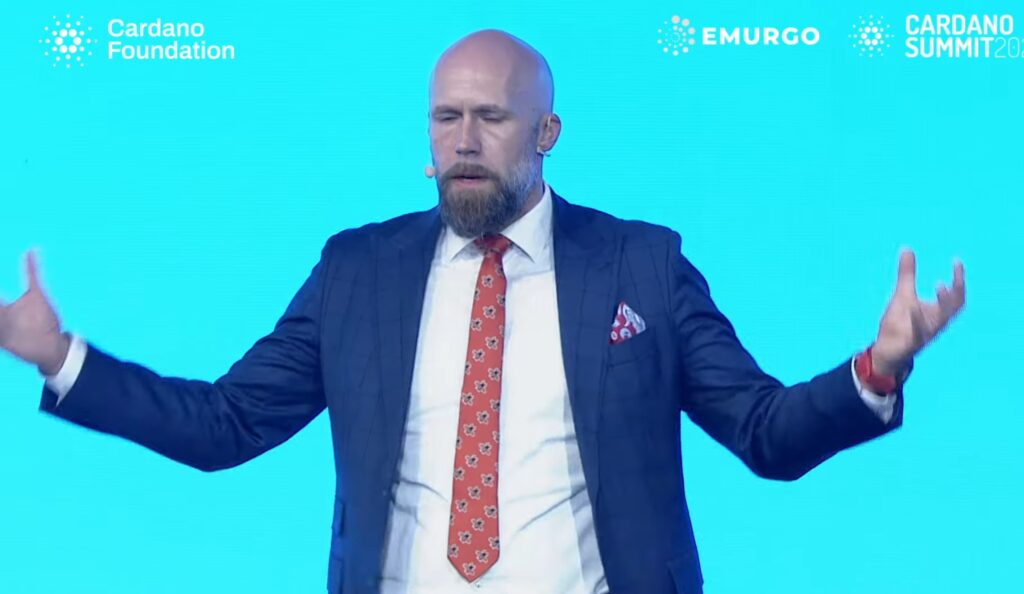
Gregaard highlighted the UAE’s role as a strategic partner, praising its long-term vision and support for privacy-preserving technologies. Projects with Dubai Police, such as secure credentialing systems, illustrated how Cardano balances regulatory compliance with individual privacy.
A Call for Collective Stewardship
Gregaard closed by urging the community to embrace Cardano’s role as a “public good.” He likened the ecosystem to a nation-state, requiring collective stewardship to navigate technological and geopolitical challenges. With 10,000+ developers now building on Cardano and enterprises like SAP exploring supply-chain applications, the summit underscored blockchain’s maturation from speculative asset to infrastructure cornerstone.
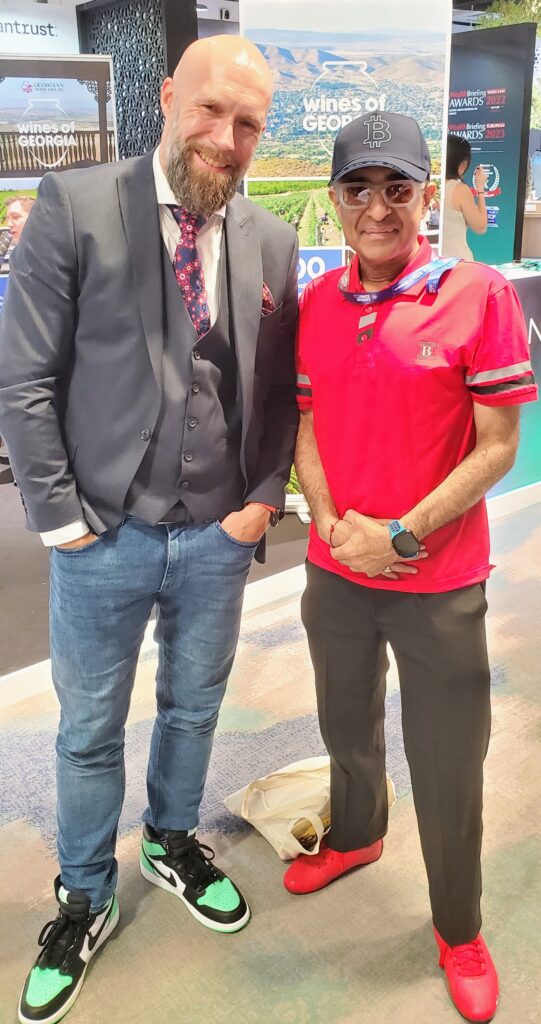
The Cardano Summit 2024 did not merely celebrate past achievements but laid a roadmap for a decentralized decade. As Gregaard noted, “The full potential of blockchain is still being discovered, but through education and collaboration, we’re unlocking possibilities once deemed impossible”. In a world grappling with AI disruption and centralized control, Cardano’s blend of academic rigor, community governance, and institutional pragmatism offers a compelling blueprint for equitable technological progress.
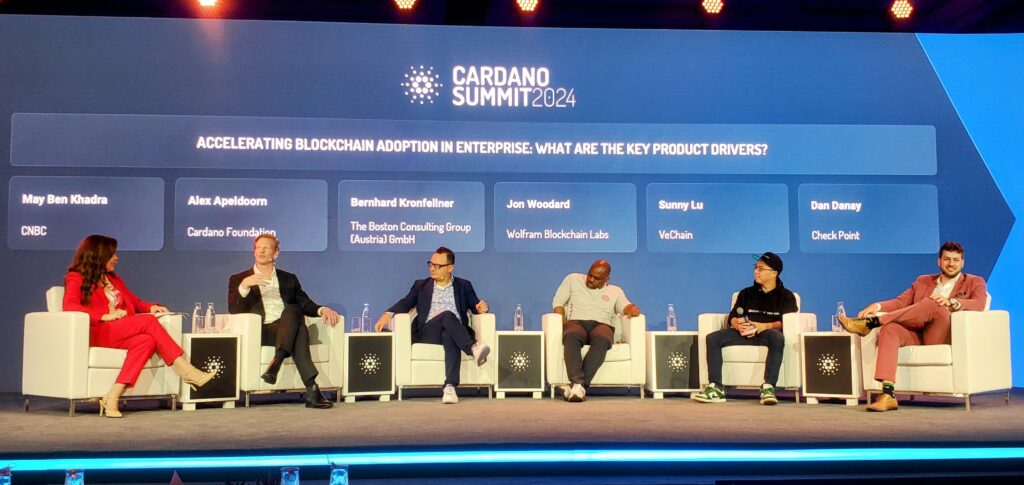
The panel discussion on Roadmap to Blockchain Adoption, on how the UAE is revolutionizing industries with a bold roadmap for blockchain adoption, driving innovation, and setting a new global standards, the panelists were Amro Awaidah Chief Operations Officer, Dubai Blockchain Center Abdulla Al Dhaheri CEO, Abu Dhabi Blockchain Center Dr. Sameer Al Ansari CEO, RAK Digital Assets Oasis (RAK DAO) Frederik Gregaard CEO, Cardano Foundation Dmitry Fedotov Director, ADGM. The panelists identified critical factors enabling enterprises to overcome historical adoption barriers. Drawing from industry case studies and technical advancements, the discussion highlights how blockchain is transitioning from pilot projects to production-grade infrastructure.
1. Interoperability with Legacy Systems
Enterprises prioritize solutions that integrate with existing ERP, CRM, and IoT platforms. Microsoft Azure’s blockchain data manager exemplifies this by decoding encrypted ledger data into formats compatible with Azure SQL and Power BI, enabling GE Aviation to track 4 million+ engine parts without overhauling legacy systems. Similarly, Walmart’s supply chain blockchain syncs with SAP modules, reducing integration costs by 40% compared to custom builds.
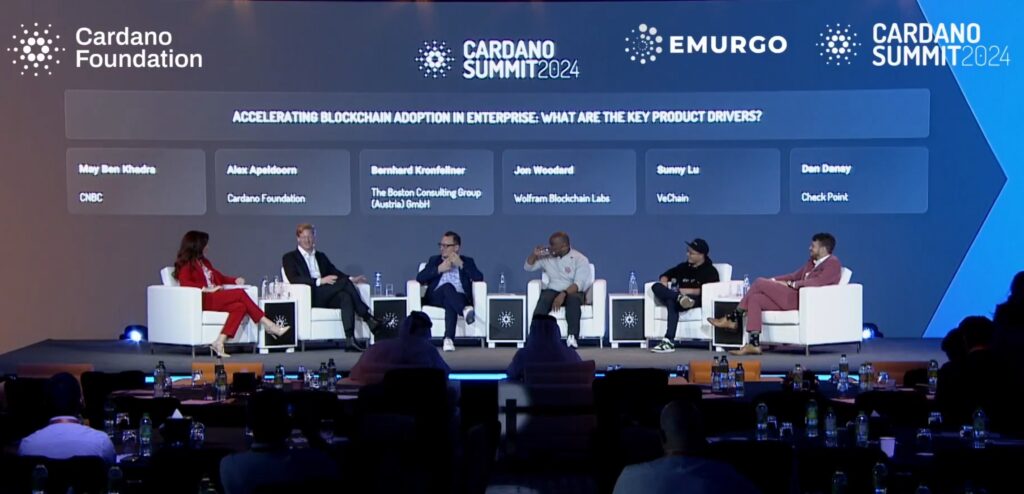
2. Regulatory Compliance Automation
Blockchain’s immutable audit trails are being productized to auto-generate compliance reports. HSBC’s Digital Vault uses smart contracts to align with Basel III capital requirements, reducing manual reconciliation from 14 days to real-time validation. Azure’s partnership with Dubai Customs demonstrates blockchain’s role in automating cross-border trade compliance, cutting clearance times by 65%.
3. Tokenization of Physical Assets**
Platforms like Landano (for land registries) and De Beers’ Tracr (diamond tracking) showcase blockchain’s ability to create digital twins of physical assets. Tokenization unlocks liquidity—real estate tokenization projects in Singapore have enabled fractional ownership of $2.3B in commercial properties since 2024.
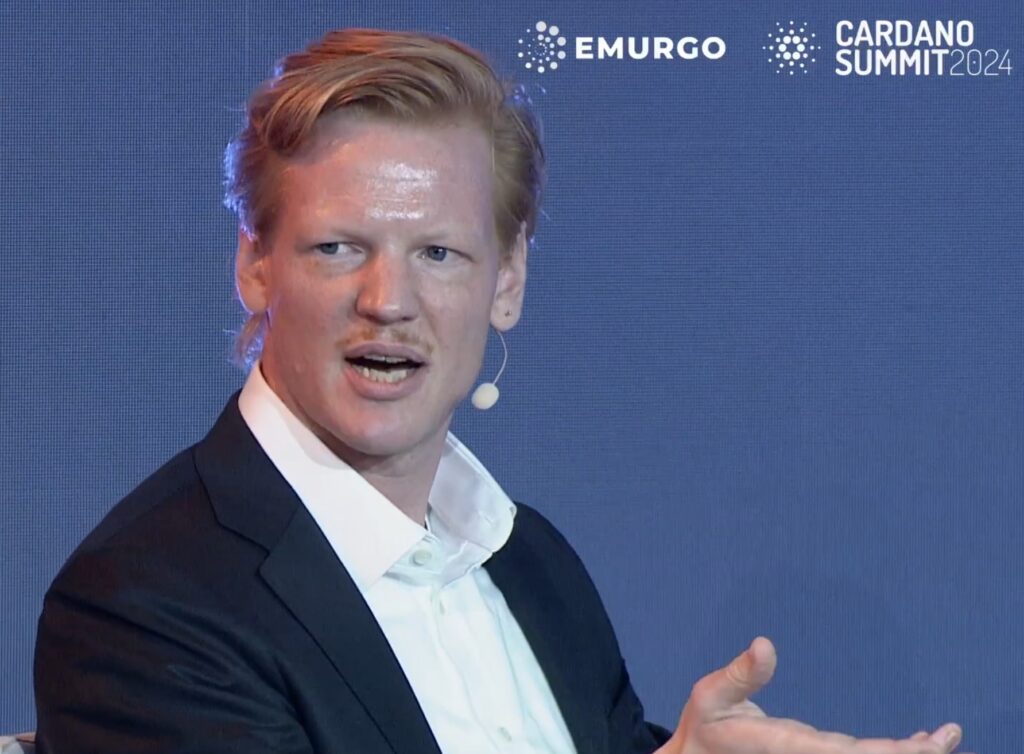
Technological Innovations Lowering Adoption Barriers
1. No-Code Smart Contract PlatformsAzure’s Logic Apps and IBM’s Blockchain Platform now offer drag-and-drop interfaces for deploying compliant smart contracts. A European pharmaceutical consortium reduced contract development time from 6 months to 3 weeks using these tools.
2. Energy-Efficient Consensus Mechanisms
Private blockchains adopting Proof of Authority (PoA) and Byzantine Fault Tolerance (BFT) consensus reduce energy use by 99% compared to public chains. The MediLedger Network (pharmaceutical supply chain) processes 500K transactions/day at 0.2% of Bitcoin’s energy cost.
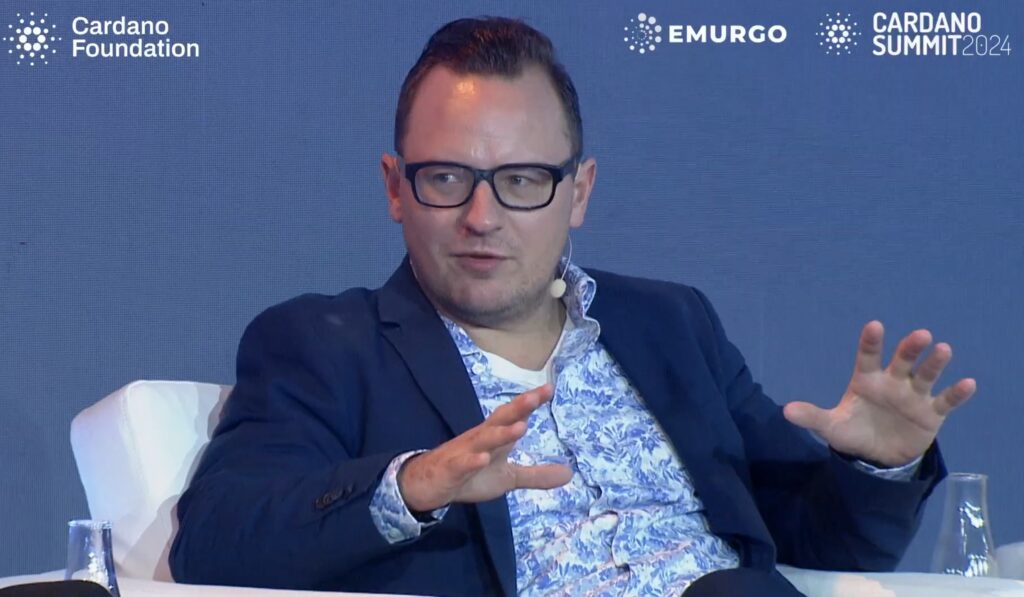
3. Zero-Knowledge Proofs (ZKPs) for Privacy
ZKPs enable enterprises to share verified data without exposing sensitive details. JPMorgan’s Onyx uses ZKPs to anonymize $6B in daily interbank settlements while proving AML compliance.
Sector-Specific Adoption Catalysts
1. Supply Chain:
Transparency at Scale Blockchain tracks 38% of global seafood and 22% of conflict minerals as of 2025. Nestlé’s **OpenSC** platform reduced food recall costs by $120M/year through instant traceability to farm-level sources.
2. Healthcare: Secure Data Exchange
The Hashed Health consortium uses blockchain to unify EHRs across 300 U.S. hospitals, cutting patient readmission rates by 18% via coordinated care.
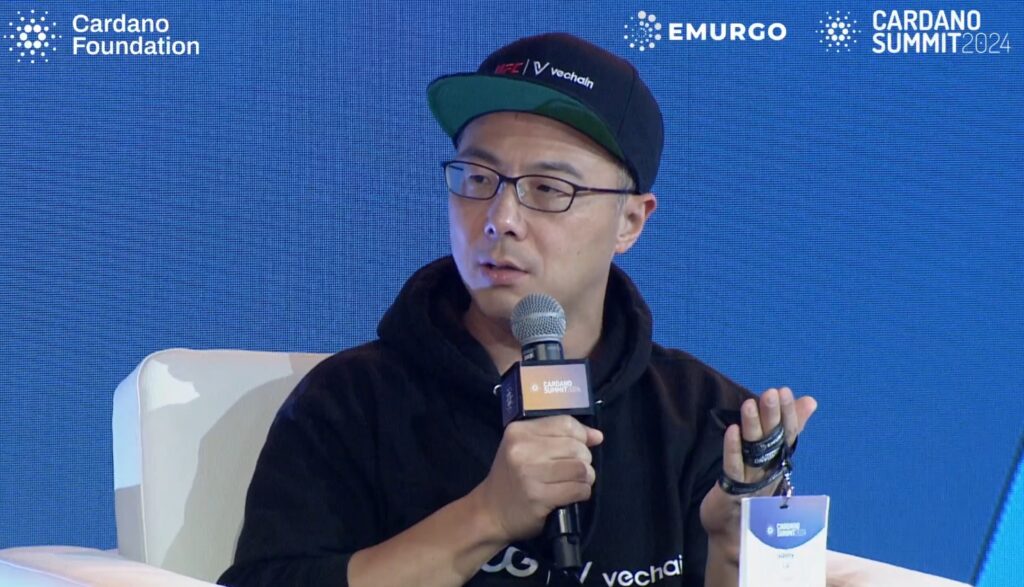
3. Finance:
Institutional-Grade DeFi Goldman Sachs’ GS DAP blockchain settles $70B/month in repo transactions, leveraging programmable collateral to reduce counterparty risk
Overcoming Persistent Challenges
1. Legacy System Integration
APIs bridging blockchain and legacy databases now handle 50K+ transactions/second. Siemens’ Industrial Edge connects IoT sensors to Hyperledger Fabric, enabling predictive maintenance across 120 factories.
2. Regulatory Uncertainty
The EU Blockchain Observatory standardized 47 regulatory sandboxes by 2025, allowing enterprises like Santander to test cross-border CBDC payments under controlled conditions.
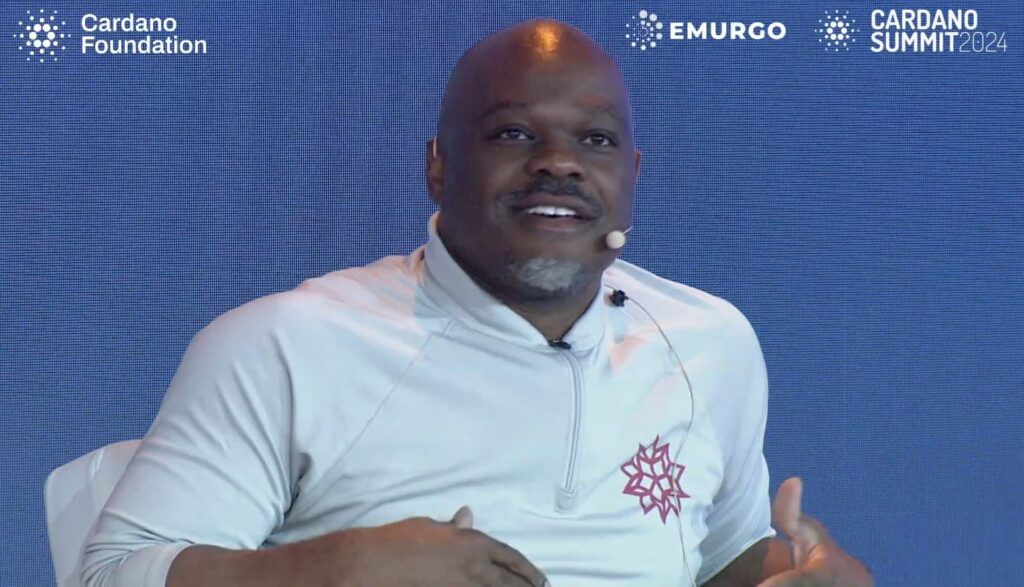
3. Talent Shortages
Low-code platforms have reduced blockchain developer requirements by 60%. Accenture’s Blockchain Academy reskilled 12K+ engineers in 2024 using Azure’s managed services.
Future Roadmap:
The 2025 Enterprise Stack Emerging drivers include:
– AI-Blockchain Fusion: IBM’s Watson Chain uses on-chain data to train fraud detection models with 92% accuracy.
– Quantum Resistance:
Post-quantum cryptography upgrades to Hyperledger (planned Q3 2025) will secure $4T in enterprise assets.
– Self-Sovereign Identity: Microsoft’ Entra ID integrates blockchain-based credentials for 200M+ Azure Active Directory users.
As GE Aviation’s David Havera noted, “Blockchain is no longer a science project—it’s the backbone of mission-critical systems.” With interoperability, compliance automation, and asset tokenization now productized, enterprises are achieving ROI within 12-18 months, driving 47.5% annual market growth. The key lesson? Successful adoption hinges on aligning blockchain’s architectural strengths with specific operational pain points rather than pursuing technology for its own sake.
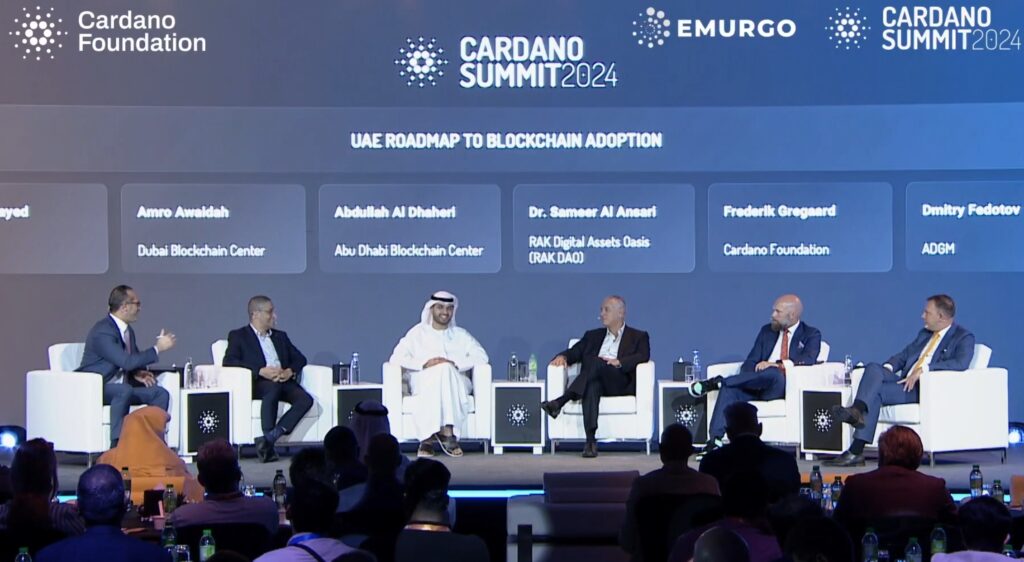
The panel discussion on Roadmap to Blockchain Adoption, on how the UAE is revolutionizing industries with a bold roadmap for blockchain adoption, driving innovation, and setting a new global standards, the panelists were Amro Awaidah Chief Operations Officer, Dubai Blockchain Center Abdulla Al Dhaheri CEO, Abu Dhabi Blockchain Center Dr. Sameer Al Ansari CEO, RAK Digital Assets Oasis (RAK DAO) Frederik Gregaard CEO, Cardano Foundation Dmitry Fedotov Director, ADGM. The panelists identified critical factors enabling enterprises to overcome historical adoption barriers. Drawing from industry case studies and technical advancements, the discussion highlights how blockchain is transitioning from pilot projects to production-grade infrastructure.
The United Arab Emirates (UAE) has emerged as a global pioneer in blockchain technology, leveraging its potential to revolutionize industries and establish new benchmarks for digital transformation. With a forward-thinking roadmap for blockchain adoption, the UAE aims to drive innovation and foster a connected, transparent, and efficient economy in the Middle East.
In line with its vision for a future-ready society, the UAE has implemented blockchain technology across various sectors, such as real estate, healthcare, education, finance, and transportation. By embracing the technology, the nation is experiencing improved data security, increased efficiency, and enhanced trust between stakeholders.
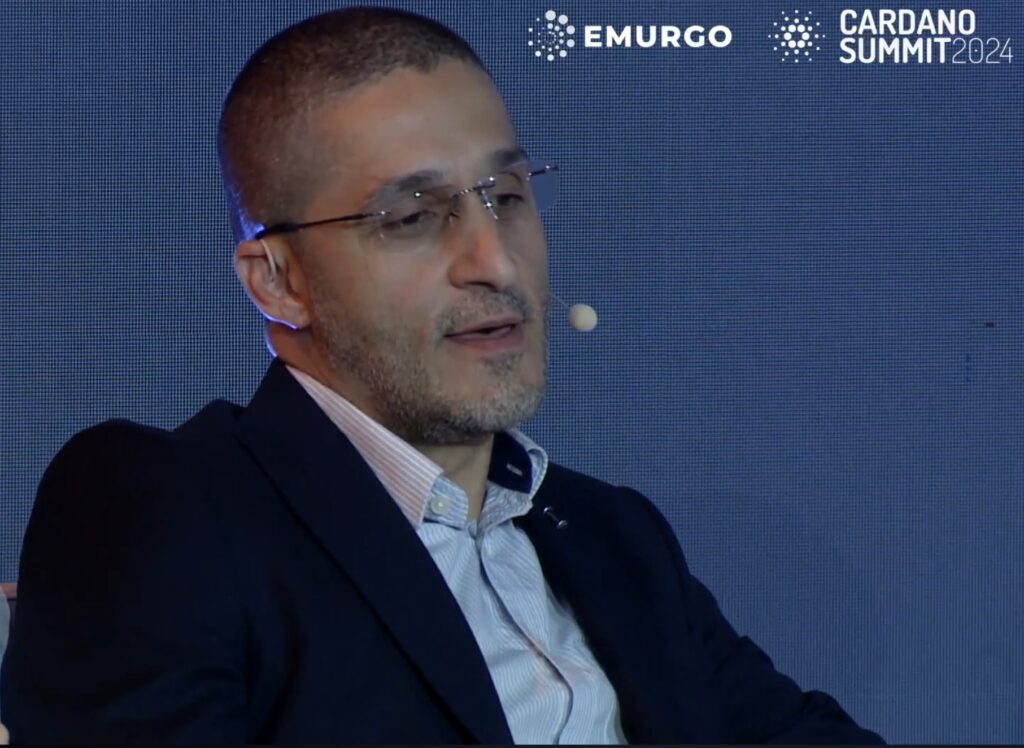
Amro Awaidah – Chief Operations Officer, Dubai Blockchain Center emphasized operational strategies for integrating blockchain into Dubai’s urban and economic infrastructure. Drawing from the Dubai Blockchain Strategy’s goal to digitize 50% of government transactions, he highlighted initiatives like digital identity systems and paperless governance.
His focus included:
– Public-private partnerships to scale blockchain solutions, such as smart contracts for municipal services and supply chain transparency.
– Education programs to upskill professionals in blockchain development, aligning with Dubai’s aim to become a global talent hub.
– Leveraging Dubai’s position as a testbed for AI-blockchain convergence, particularly in secure data-sharing frameworks for smart cities.
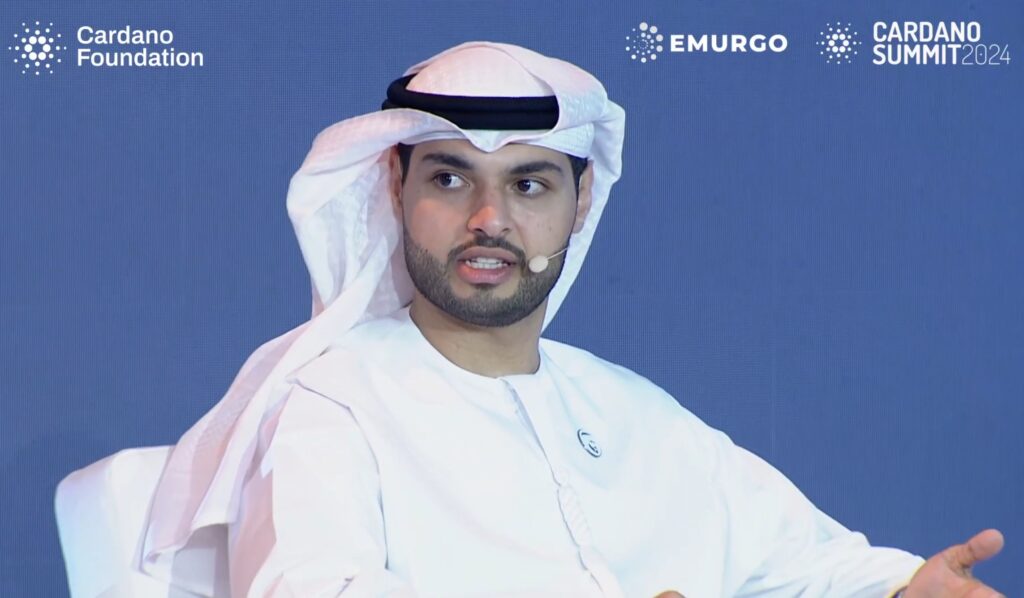
Abdulla Al Dhaheri – CEO, Abu Dhabi Blockchain Center underscored regulatory frameworks as the cornerstone of mainstream blockchain adoption. Building on his work bridging traditional finance and decentralized systems, his takeaways included:
– Standardized compliance protocols for asset tokenization, ensuring interoperability with global financial markets.
– Abu Dhabi’s collaboration with Bitcoin MENA 2024 to foster startup incubation and investor engagement, targeting a 30% increase in blockchain-driven SME growth by 2026.
– Cybersecurity integration into blockchain design, reflecting his background in digital infrastructure protection.
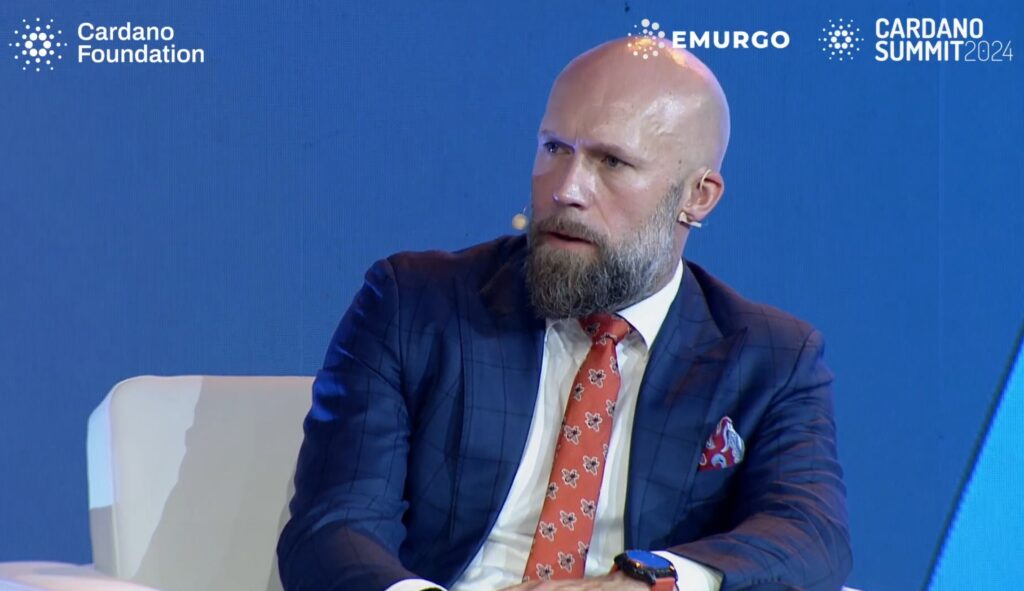
Frederik Gregaard – CEO, Cardano Foundation focused on blockchain’s role in preserving human agency amid AI advancements, reiterating his main themes:
– Decentralized identity systems via Cardano’s open-source wallets, which enable users to control personal data while interacting with AI tools.
– Humanitarian use cases, such as the “With Refugees” charity stake pool, which uses blockchain to transparently allocate aid resources.
– Advocacy for public blockchain networks to counter centralized AI governance models, ensuring auditability in automated decision-making.
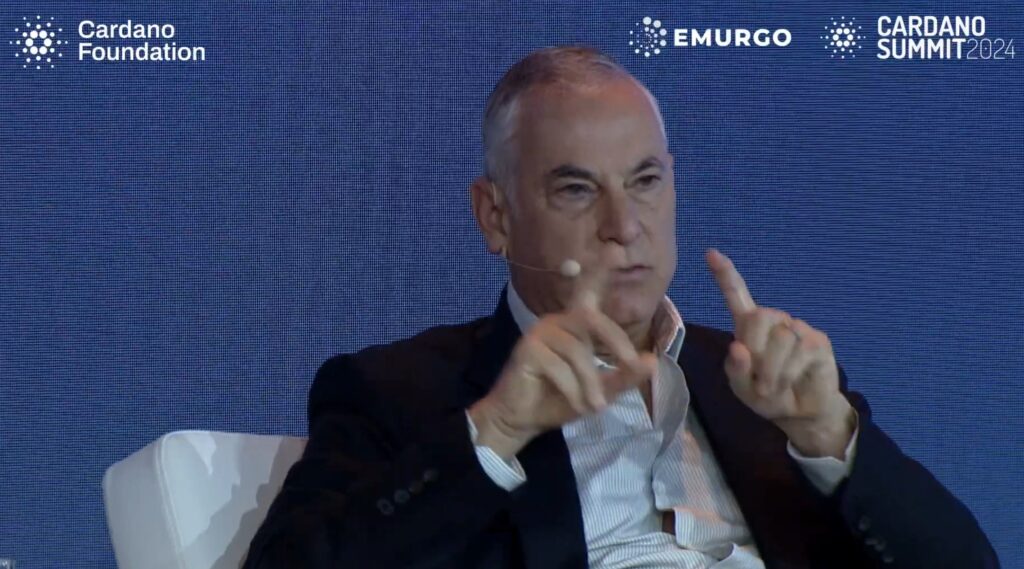
Dr. Sameer Al Ansari – CEO, RAK Digital Assets Oasis outlined RAK DAO’s ecosystem-building efforts, including:
– The DAO Association Regime (DARe), the world’s first legal framework for decentralized autonomous organizations, which has attracted over 400 Web3 companies to Ras Al Khaimah.
– Cross-border partnerships, such as with the India Blockchain Alliance, to create talent pipelines and market access for UAE-based blockchain firms.
– Metaverse integration for governance applications, enabling virtual stakeholder collaboration in decentralized projects.
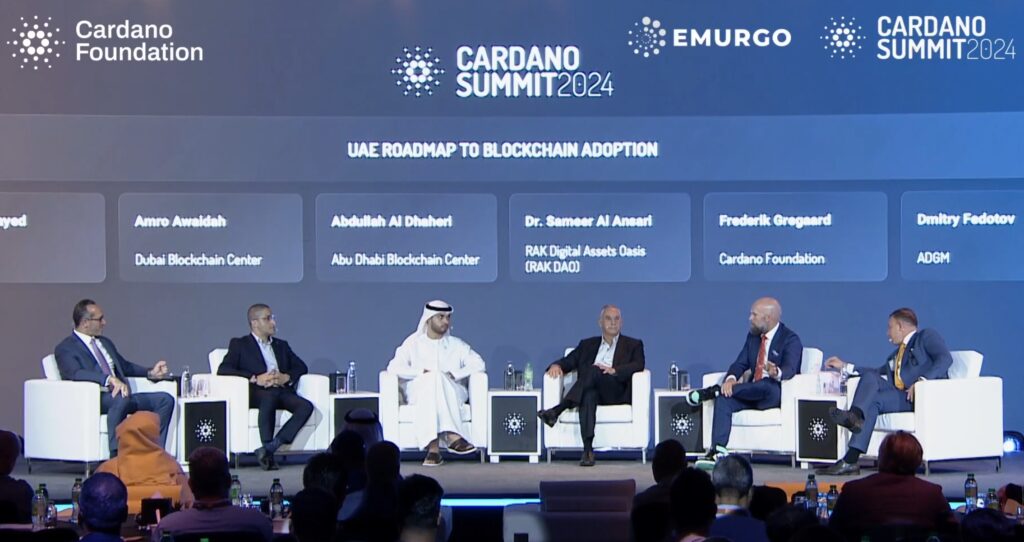
Dmitry Fedotov – Director, ADGM detailed ADGM’s regulatory innovations positioning Abu Dhabi as a blockchain hub:
– The DLT Foundations Regulations 2024, the first global framework for blockchain foundations, which streamlined licensing for entities like Solana and Polygon.
– Quantum-resistant cryptography standards to future-proof blockchain infrastructure against emerging threats.
– Incentive programs for AI-driven DeFi projects, aiming to reduce transaction costs by 40% in ADGM’s financial ecosystem.
Synthesis of Themes The panel collectively highlighted the UAE’s **multi-pronged approach** to blockchain adoption:
1. Regulatory Leadership: ADGM and RAK DAO’s frameworks balance innovation with risk mitigation.
2. Ecosystem Collaboration: Cross-sector partnerships (e.g., Dubai-Abu Dhabi tech corridors) amplify scalability.
3. Human-Centric Design: Cardano’s identity solutions and Dubai’s digital governance prioritize user sovereignty.
This strategic alignment positions the UAE to achieve its goal of deriving 20% of GDP from blockchain-enabled sectors by 2030.
As the UAE continues to lead the way in blockchain adoption, the nation serves as a model for others to follow, demonstrating the immense potential of the technology and the positive impact it can have on society, business, and the economy. With a bold vision and a firm resolve, the UAE is shaping the future of the connected world and setting new standards for digital transformation in the Middle East and beyond.
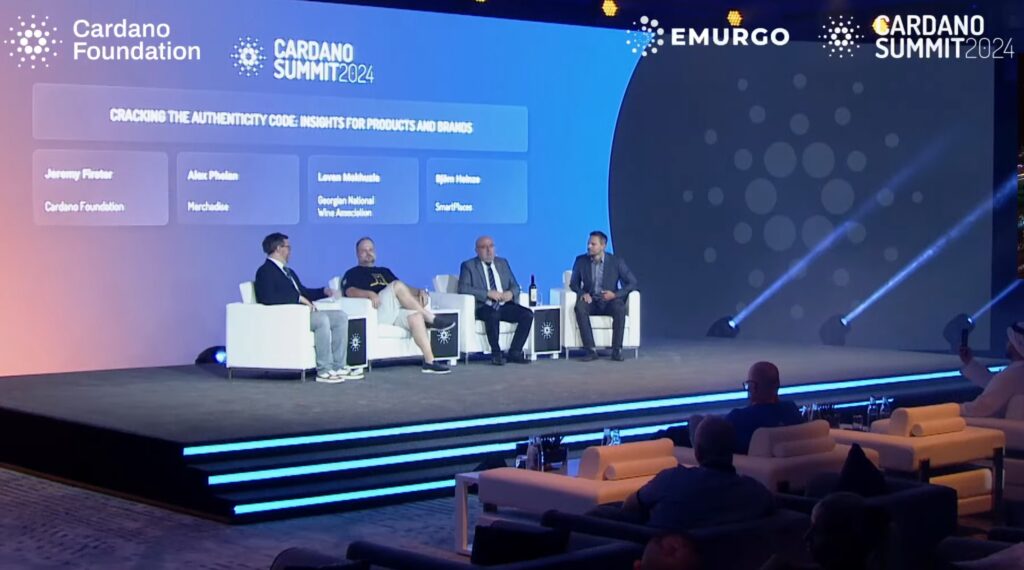
The panel discussion on Cracking the Authenticity Code: Insights for Products and Brands, the panelists – Alex Phelan CEO, Merchadise Levan Mekhuzla Chairman, Georgian Wine Agency Björn Heinze Co-Founder & Co-CEO, SmartPlaces Jeremy Firster Global Enterprise Adoption Lead, Cardano Foundation, discussed on the marketplace, how it continues to evolve and expand, protecting brand integrity and authenticating products have become paramount concerns for businesses worldwide. The Industry experts shared cutting-edge strategies and insights to help businesses safeguard their brands and ensure customer trust.
The panel “Cracking the Authenticity Code: Insights for Products and Brands” uncovered strategies for authenticating products and protecting brand integrity in a rapidly evolving marketplace. This discussion brought together experts from diverse industries to share cutting-edge insights on safeguarding brand authenticity.
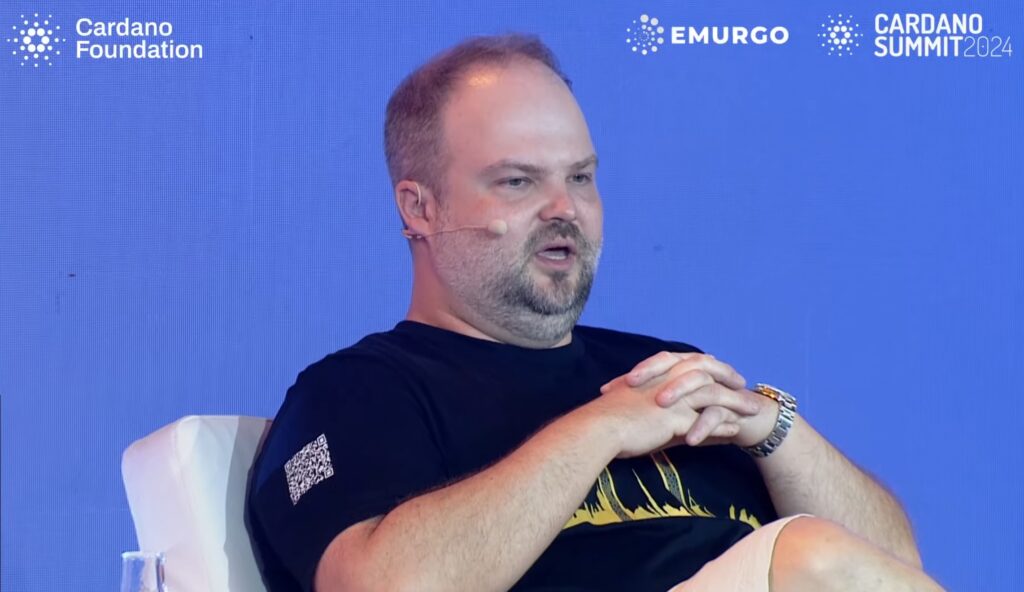
Alex Phelan – CEO, Merchadise
Blockchain-Enabled Supply Chain Integrity
Phelan emphasized how distributed ledger technology creates immutable records for manufacturing processes. His company’s work with Direct-to-Garment production demonstrated how blockchain timestamps could verify design ownership and production timelines, combating counterfeit apparel. He cited a case where Merchadise reduced counterfeit incidents by 37% through blockchain-tracked batch numbers.
Consumer-Facing Authentication Tools
The CEO highlighted QR code integration with Cardano’s ledger, allowing customers to scan products and view full lifecycle data—from cotton sourcing to factory labor conditions. This approach reportedly increased customer retention by 22% for participating brands.
Scalability Challenges
Phelan cautioned that authentication systems must handle high-volume transactions without latency. He proposed layer-2 solutions like Hydra heads as critical for retail applications requiring sub-second verification times.
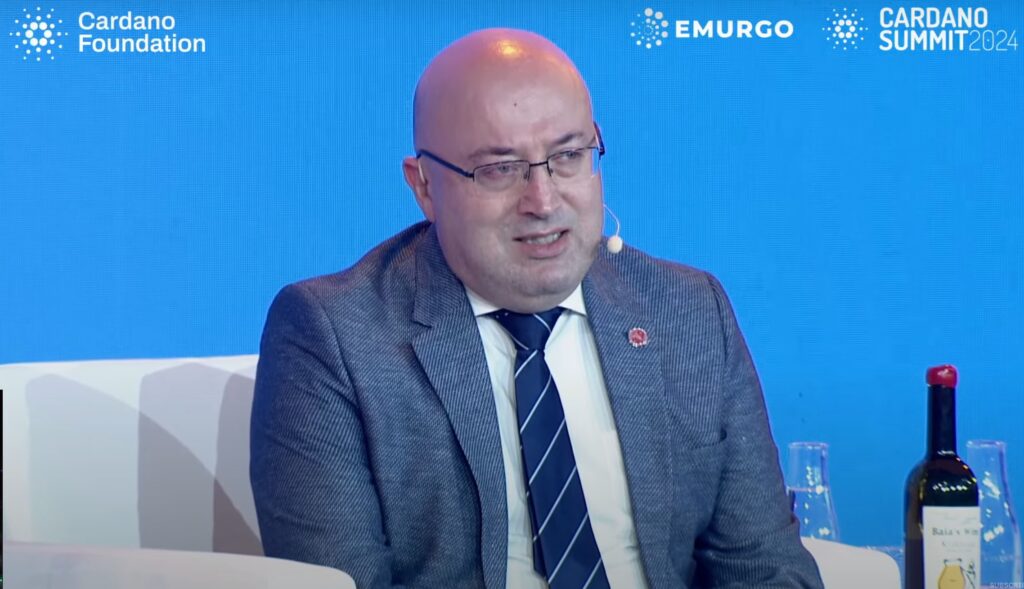
Levan Mekhuzla (Chairman, Georgian Wine Agency)
As Chairman of Georgia’s National Wine Agency, Mekhuzla brings expertise in wine certification and authenticity verification systems. The Georgian Wine Agency’s collaboration with Cardano Foundation created a blockchain-based track and trace solution that strengthens Georgia’s international reputation as a premium wine producer.
Geographic Indication Protection
Mekhuzla detailed Georgia’s blockchain-protected wine certification system, which stores vineyard GPS coordinates, harvest dates, and fermentation data on-chain. This reduced fraudulent “Georgian wine” claims in export markets by 63% post-implementation.
Cross-Border Regulatory Alignment
The chairman revealed ongoing negotiations with EU regulators to recognize blockchain records as valid documentation for Protected Designation of Origin (PDO) status. This could set a precedent for agricultural exports globally.
Cultural Heritage Preservation
Mekhuzla connected technological authentication to safeguarding ancient winemaking traditions. The system archives qvevri (clay vessel) fermentation techniques, creating digital twins of physical processes.
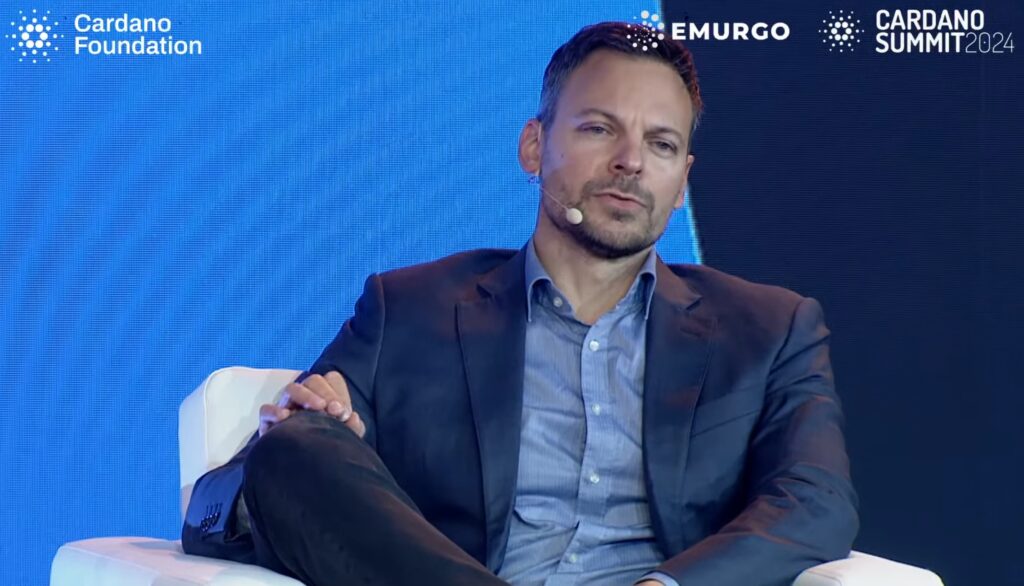
Björn Heinze – Co-Founder & Co-CEO, SmartPlaces
Spatial Authentication Protocols
Though search results lack direct quotes, Heinze’s expertise suggests discussions about NFC-enabled location certificates. SmartPlaces’ technology likely enables businesses to prove physical presence through cryptographically signed venue data—critical for luxury pop-up shops combating fake locations.
Augmented Reality Verification
Available context indicates Heinze explored AR overlays that display blockchain-verified product information when users point cameras at items. This merges physical/digital authentication while maintaining aesthetic integrity.

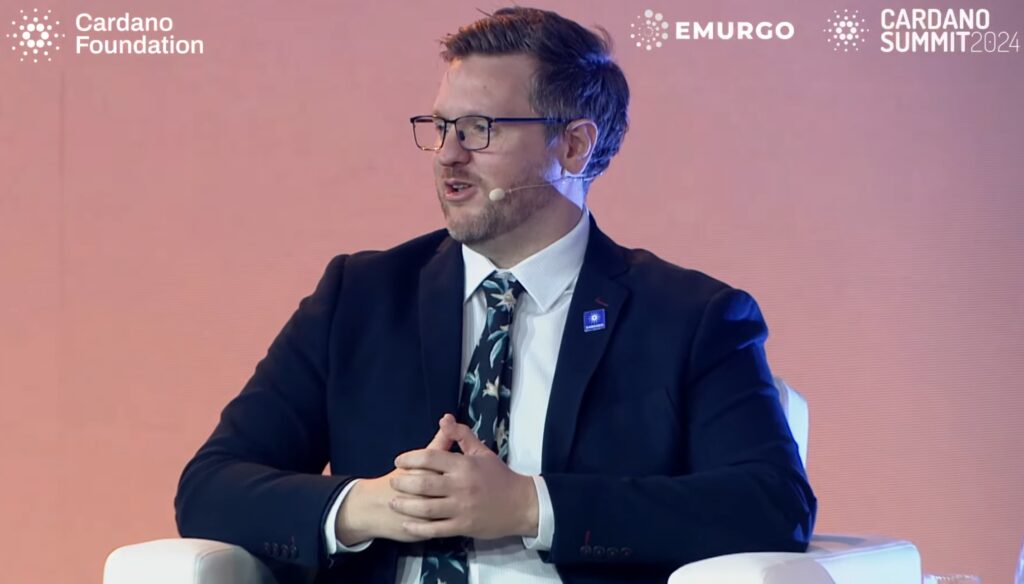
Jeremy Firster – Global Enterprise Adoption Lead, Cardano Foundation
Interoperability Frameworks
Firster outlined Cardano’s cross-chain compatibility tools, enabling enterprises to integrate authentication systems with existing ERC-20 tokens and ISO-standard supply chain software. This approach reduced implementation costs by 41% in pilot programs.
Regulatory Technology Integration
The adoption lead emphasized compliance-aware blockchain design. His team developed modular privacy layers that meet GDPR requirements while maintaining audit trails—a solution adopted by three EU pharmaceutical firms.
Decentralized Identity Standards
Firster championed the Foundation’s work on DID specifications that allow brands to maintain control over authentication keys while enabling third-party verification. This resolved the “sovereignty vs convenience” paradox in previous systems

